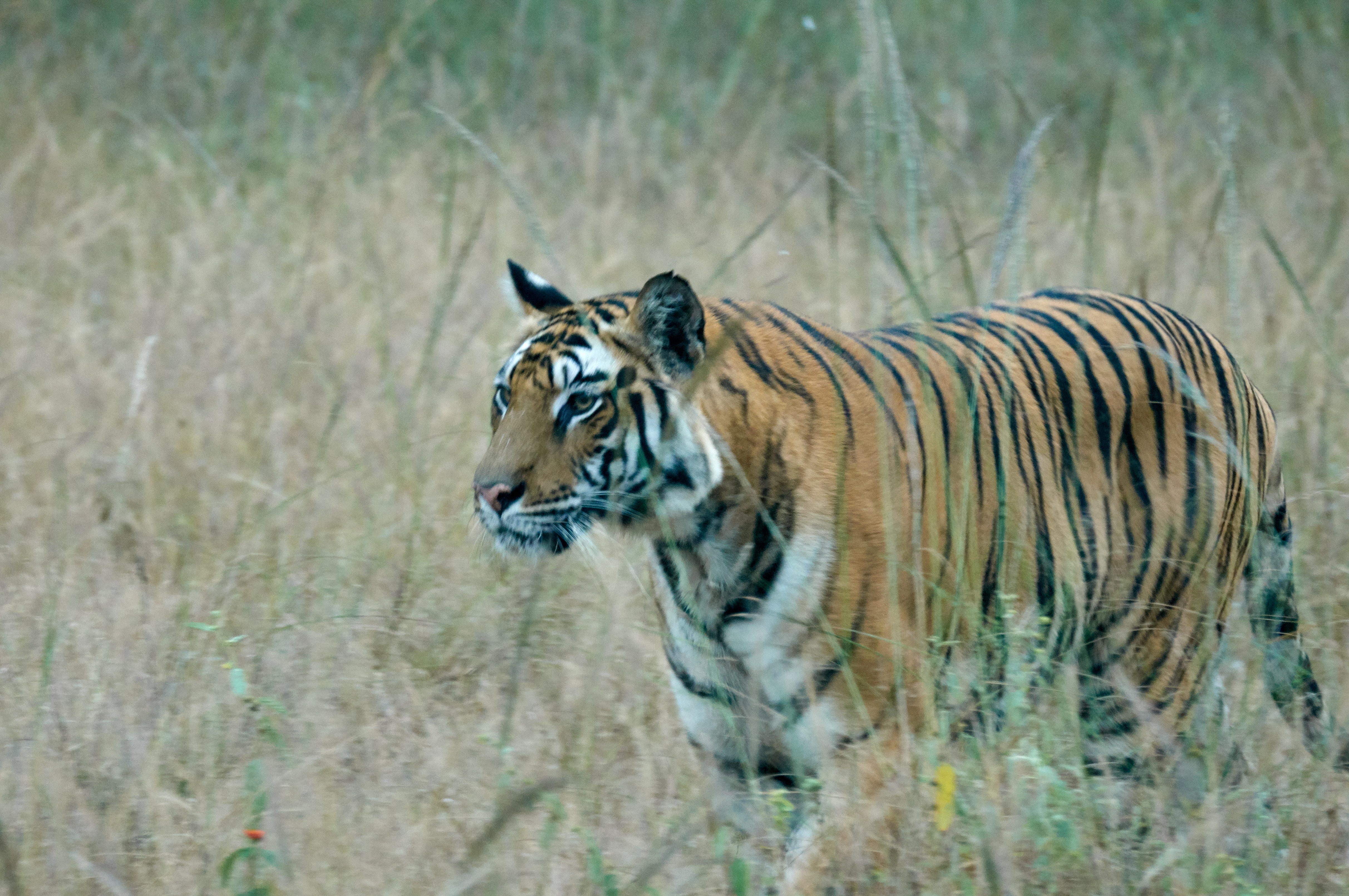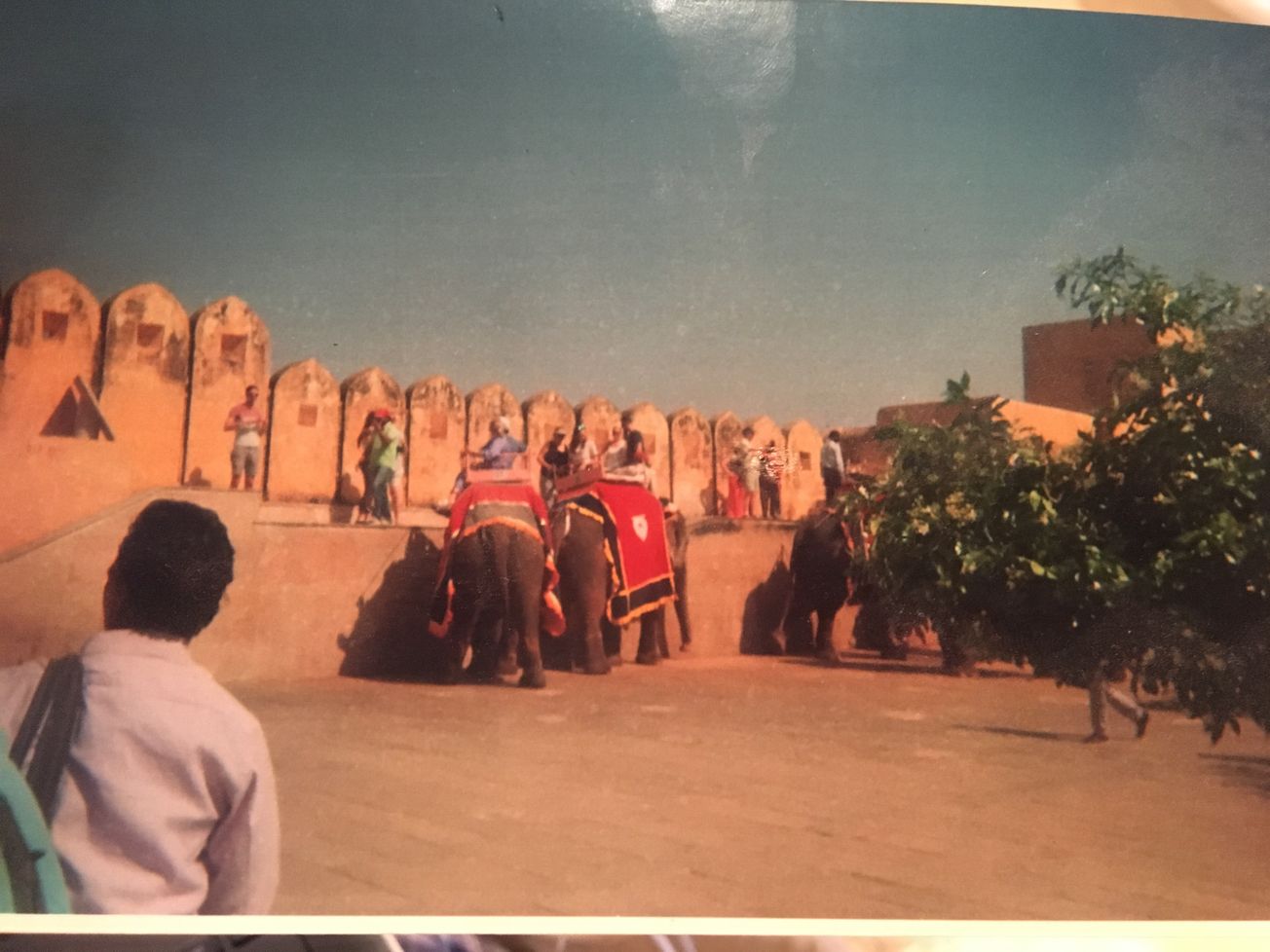By Leah Martindale 3rd year Film and Television
Leah Martindale recalls her experience of camping out in the Indian safari fields, with screeching monkeys and hungry tigers a-plenty.
Nearly two years ago, in April 2017, my mother and I embarked on a two-week long tour of Northern India. Alongside the usual sights of the Taj Mahal, the multi-lane highways of Delhi, and the jewellery dynasty of Jaipur, we were also fortunate enough to embark on two authentic Indian safaris. The experience was enlightening, enjoyable, and enraging in equal measure.
Our first safari started at 6am, as the roasting sun rose over the rolling hills. We sat as two of fifteen tourists in a rickety jeep, exposed metal reaching burning temperatures under the 40℃ blaze. Tired, sweating, but overwhelmingly excited, we headed off.
The first safari was relatively uneventful. We saw boar, monkeys, birds and reptiles. The second attempt was much more eventful. As well as all our sights from the morning, we spotted a host of exotic and exciting animals. Crocodiles basking underwater marked our first sight, easily mistaken for logs even by tourists expecting a sight, so it’s easy to understand how smaller animals get gobbled up before they know what’s hit them.
Later, our trailing the animal calls paid off, as we found ourselves across a lake from a tiger stalking his prey. As majestic a sight as it was, I will be the first to admit that forty minutes in a jeep hot enough to cook an egg on, watching a speck of a tiger in a well-camouflaged bush watching a squad of deer chomping on dry grass was not the most riveting use of my time. The initial excitement quickly diminishes when you are sat in silence (so as not to spook any of them) watching a still scene.

Flickr / Tim Ellis
Finally, after what felt like at least a full semester sat watching, the tiger set off at top speed for the deer. Somehow, despite far too long spent contemplating the attack and a natural advantage of about 600lb, the beautiful spotted deer managed to escape the tiger’s grasp.
The most amazing, if short-lived, part of our safari was probably our fleeting encounter with a real life leopard. As we embarked on our way back from the anti-climactic tiger viewing, a gasp rippled through the group as the dry bush slowly twisting in the wind stood up and ran past us. In a couple of seconds we had gone from unsuspecting, happily rolling on home, to blown back by a gust of wind that accompanied the departure of one of nature’s most beautiful and elusive hunters.
As much as I learned about nature, wildlife, and the beautiful planet we are lucky enough to live on during my safari adventures, sadly I also learned a little too much about the selfishness and disrespect that some humans are happy to exhibit. The safaris are about three hours long each, from leaving the hotel to returning. Naturally, about halfway through a few members needed the bathroom, at a designated - though no doubt disgusting - pit stop makeshift bathroom. Of course, one man’s treasure is another man’s absolute trash, and some people took it upon themselves to do as humans are wont to do.
Within seconds of stopping a little boy - who really shouldn’t have been out, uncovered and dehydrated in the sun for such an extended period of time - announced loudly in baby garbling that he was hungry. Cracking open a packet of crisps on safari is like walking the cat-infested streets of Bristol in a coat made of Dreamies, as birds descended from parts of the park we had not even travelled to yet for a little tasty snack.
Of course, the family were happy to oblige. Feeding wild, beautiful birds tomato flavoured crisps from the palm of your hand may be funny to some, but to me it was a damning indictment of the general education tourists arrive in foreign ecosystems with. With the guides laughing along, it was clear that these were people with more interest in making a buck than preserving the nature they were blessed to live amongst.
India in itself was a curious adventure. In amongst the wildlife reserves and natural preservations are street performers with monkeys on chains, billboards decrying the funding of bear dances, and so many stray domesticated animals you could lose count in a few steps. The whole country’s devastating juxtaposition between extreme wealth and nightmarish poverty has bred an economy where the exploitation of animal life is a sad side effect of many people’s survival. As much as I loved the safari, it was hard to enjoy without the realities of the country I was exploring seeping through the cracks.
Featured Image: Epigram/ Leah Martindale
Have you been on a safari? Let us know!









